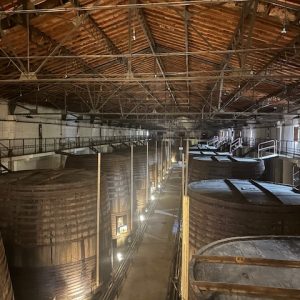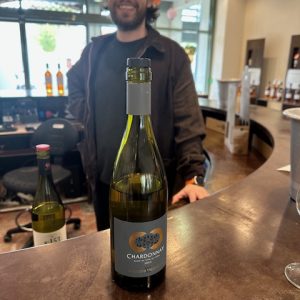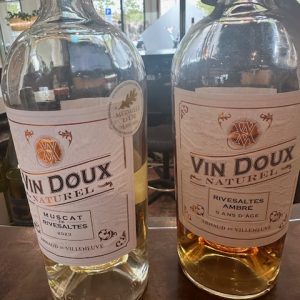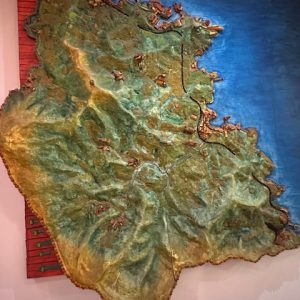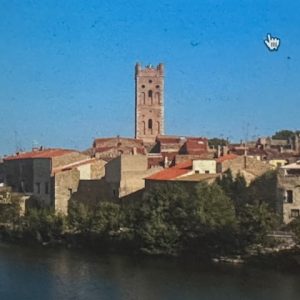Rivesaltes
I always wanted to visit Rivesaltes because of the musicality of the word. As I learnt, Rivesaltes means “high shores”, as the town is located on the high shores of the river Agly,
In reality Rivesaltes is an unremarkable small town, just 5km from Perpignan, near the Mediterranean coast and the border with Spain, in the Pyrénées-Orientales region.
There is every reason to believe that Rivesaltes existed at the time of the Saracen invasion in 729. Its name is mentioned in 923 and shows the existence of two churches, Saint-André and Sainte-Marie.
The town is known more recently for its ugly history. The Camp de Rivesaltes, also known as Camp Joffre, was an internment and transit camp during World War Two. Between August 11 and October 20, 1942, 2,313 foreign Jews, including 209 children were transferred from Rivesaltes via the Drancy internment camp to the Nazi extermination camp Auschwitz, where they were murdered.
Today, It is also well known thanks to its sweet wines. Rivesaltes is an appellation d’origine contrôlée for naturally sweet, fortified wines.
The main grapes used for white Rivesaltes wines are Grenache blanc, and Grenache gris. The only grapes allowed for red Rivesaltes wines are Grenache noir, Grenache blanc, Grenache gris, Macabeu, and Malvoisie du Roussillon.
Styles can be labeled ambré, grenat (garnet), tuilé (tiled), or rosé, provided they meet certain conditions.
But like much of modern France, Rivesaltes is moving beyond its traditions, as I learnt during a nice tasting. It now makes excellent dry red, white and rose wines. I bought a couple of reds for June.
More fundamentally, the new generation of grape growers and winemakers have usually studied oenology, and can bring technology and industry best practices to their wine making. This is in sharp contrast to their ancestors who made their wine according to tradition, rather than science.

